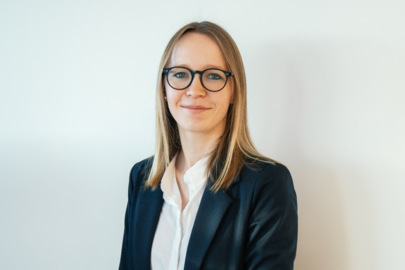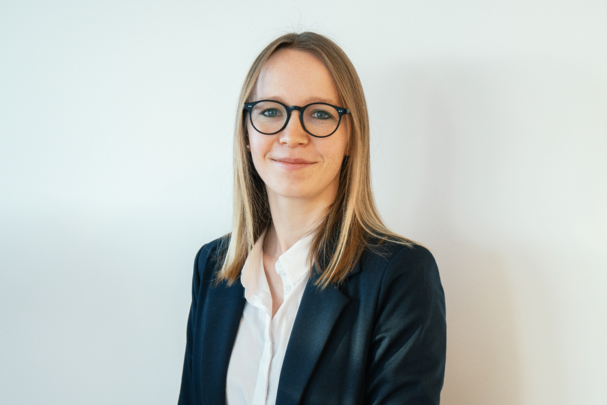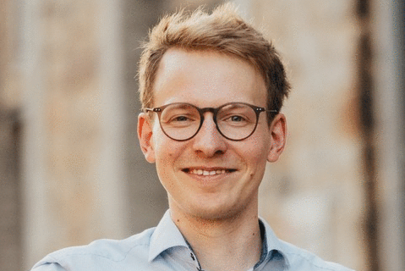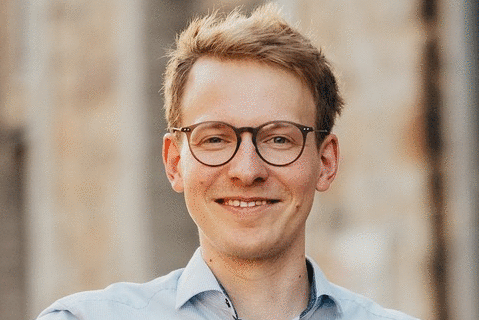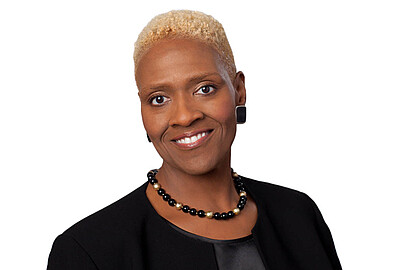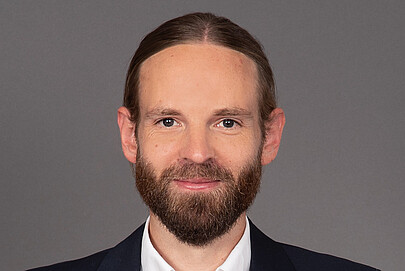27.04.2025


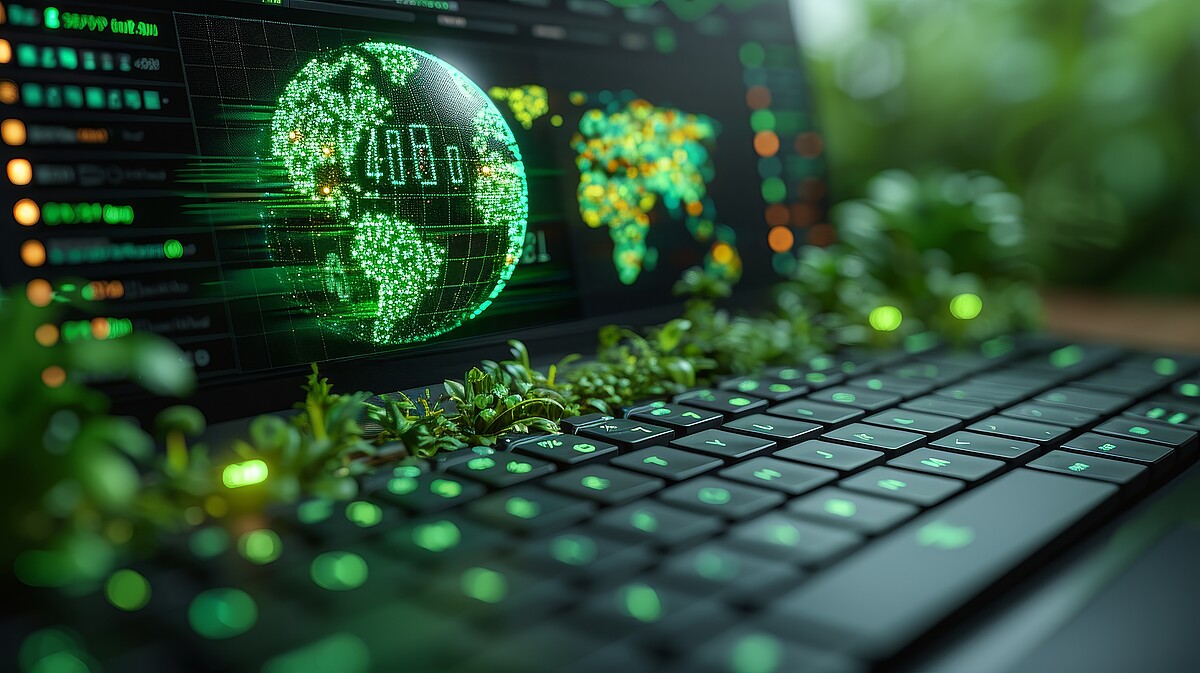 ©
Adobe Stock
©
Adobe Stock
Sustainable value creation is generated through products and services that are designed, produced, and deployed in ways that contribute in tackling economic, ecological, and social challenges. Practical examples show that such effects rarely come from 'Silver Bullets.' More often, the full potential unfolds through the complementary use of different services. A compelling example is mobility systems that achieve individual transportation through a balanced combination of different modes and services of transportation. Because their elements are not 'tightly coupled,' the underlying ecosystems open up new solution spaces, for example, for the circular management of resources, fair supply chains, responsible cooperation, or contribute to an ecosystem’s resilience. To enable 'sustainable ecosystems' (Schoormann et al. 2024), available offerings must be automatically recognized and recombined in a customer-centric manner. This results in far-reaching requirements, including technical capabilities for data processing and (decentralized) coordination, as well as new operational concepts, such as data sharing and collaborative service delivery. The workshop follows this vision and has been investigating theoretical foundations, empirical evidence, and suitable development methods since 2021.
We invite behavioral or design-oriented contributions, as well as concepts and discussion contributions in one or more of the following areas:
-
1. Sustainable applications of data-driven products and services
Data-driven and cyber-physical systems can support key sustainability goals, for example in the areas of sustainable mobility, logistics, healthcare, industry, or urban development. This topic focuses on:
• Empirical studies on the role of data-driven and cyber-physical systems in achieving the 17 Sustainable Development Goals (SDGs).
• Analysis of the impact of the digital transformation of conventional products and services on existing sustainability paradigms through comparative case studies and quantitative research.
• Problem analyses and solution approaches to increase market penetration of sustainable data-driven solutions, including problem-oriented strategies, potential analyses, and cost-benefit assessments.
-
2. Methods and models for the development of sustainable offerings
To make data-driven solutions more sustainable, innovative methods, models, and tools are required. This topic focuses on the following aspects:
• Development and testing of innovative, interactive, and collaborative development methods to support interdisciplinary collaboration in the design of sustainable ecosystems and their (digital) offerings.
• Systematic implementation of intertemporal dependencies and lifecycle management in the development of services for sustainable ecosystems and analysis of their impact on circular strategies (e.g., 9R strategies).
• Development and testing of AI-supported digital twins as a holistic model of sustainable ecosystems, e.g., for the evaluation of sustainability effects or the identification of capability gaps in sustainable ecosystems.
-
3. Establishment of sustainable ecosystems
The successful implementation in business and society depends not least on the given regulatory framework, which has been shaped and influenced by research in recent years. We invite contributions that analyze ecosystems or political steering instruments and thereby contribute to their designability. This topic addresses:
• Development of customer-oriented business and cooperation models that create sustainable added value for users through data sharing and data-driven ecosystems.
• Design of infrastructure and regulatory measures (e.g., GAIA-X, EU Data Act, EU AI Act) that enable transparent, secure, and sustainable use of data and support digital governance in, e.g., the financial sector (CRR III) and other industries.
• Integration of (socio-)technical trends, such as electrification in mobility or off-highway machinery, into sustainable ecosystems to develop customer-oriented, resource-efficient, and future-proof solutions.
-
4. Consumer / Customer value perception and the role of the (end) customer in service bundling
For the fifth edition of the workshop, the focus will also be on end consumers / customers and users of offerings from sustainable ecosystems. Contributions to this topic, for example, address the qualification and quantification of the value contribution of sustainable offerings or the customer-side configuration of services within the ecosystem (e.g. in the sense of customer co-design) and the corresponding digital tools. We invite both conceptual contributions and behavioral studies. This topic will be represented by Prof. Frances Turner from Ithaca College, NY, as guest editor.
Program Committee
| Prof. Dr. Frederik Möller (TU Braunschweig) |
Prof. Dr. Ricarda Schlimbach (HS Heilbronn) |
| Prof. Dr. Gero Strobel (Uni Stuttgart) |
| Dimitri Petrik (Uni Stuttgart) |
| Henning Gösling (DFKI Kaiserslautern; Smart Factory) |
| Marco Di Maria (Uni Hildesheim) |
| Frances Turner (Ithaca College, New York) (Guest Chair) |
| Oliver Werth (OFFIS Oldenburg) |
| René H. Reich (KU Leuven) |
| Cristina Mihale-Wilson (BrAIniacs GmbH, Göthe Universität Frankfurt) |
| Prof. Dr. Robert Keller (Hochschule Kempten) |
| Kevin Lefeuvre (Bauhaus Universität Weimar) |
| Pauline Weritz (University of Twente) |
Schedule
Contributions
The target group of the workshop is primarily focused on researchers but should also provide a platform for practitioners from companies, organizations, or public administration for joint (experience) exchange.
The contribution formats for publication in the conference proceedings (LNI) are planned as follows:
• Long paper – research paper or case study (10 pages; excl. references)
• Short paper – research paper, short communication, or sketch (4 pages; excl. references)
Accepted contributions will appear after a review process (i.e., peer review, blind) in this year's Informatics conference proceedings in the series 'Lecture Notes of Informatics' (LNI). Contributions must adhere to the author guidelines of the LNI template (https://gi.de/service/publikationen/lni) and can be submitted in both English and German.
Furthermore, we would like to invite contributions in alternative formats such as discussion rounds, game-based approaches, prototype presentations, project showcases, practical reports (e.g., pitfalls), or small workshops. Corresponding ideas should be sent by email to the organizing team (Paul Christoph Gembarski, gembarski@ipeg.uni-hannover.de), and will be reviewed for relevance to the workshop, but will not initially be published in the conference proceedings.
The publication requires the registration of at least one author for the INFORMATIK. Each accepted contribution will be presented at the workshop. Please submit your anonymized contribution as a PDF file via EasyChair:
History of Sustainable Ecosystems (NaWerSys)
-
2024
Proceedings
- INFORMATIK 2024: https://dl.gi.de/search?spc.page=1&query=NaWerSys%20IV%20%E2%80%93%20Nachhaltige%20Wertsch%C3%B6pfungssysteme
- Preface: https://dl.gi.de/items/3f227abe-4d65-4384-a561-ebdffb89c331
- Article on "Sustainable Ecosystems": dl.gi.de/items/39e266a9-e1f3-4d4c-8579-bf0f6b6c0491
Program – 26.09.2024 in Wiesbaden, GER
- Session 1 (Chair: Thorsten Schoormann)
- Gieß et al.: Green data, green future? How data spaces enable the product carbon footprint calculation for the automotive industry.
- Walter et al.: Modeling value exchange in informal care support ecosystems.
- Merz & Petrik: Potentials of artificial intelligence for the return of electric vehicle batteries to the circular economy.
- Schweihoff & Jussen: Keeper of the building data: Exploring the potential for data trustees in the building sector.
- Session 2 (Chair: Friedemann Kammler)
- Stevenson et al.: Nachhaltiges Retourenmanagement im E-Commerce.
- Carl et al.: How to promote the spread of data-driven business models by involving all relevant stakeholders?
- Driller & Trang: Unlocking sustainable reporting: Leveraging knowledge graphs for ESG metrics extraction.
Chairs 2024
- Thorsten Schoormann, TU Braunschweig, Data-Driven Enterprise | Fraunhofer ISST
- Paul Christoph Gembarski, Leibniz Universität Hannover, Institut für Produktentwicklung und Gerätebau
- Simon Hagen, HARTING Technologiegruppe
- Friedemann Kammler, UNEOS AG
Program Committee 2024
Marvin Auf der Landwehr (HS Hannover), Helge Fischer (FOM Essen), Christoph Heinbach (Deutsches Forschungszentrum für Künstliche Intelligenz), Ilka Jussen (TU Dortmund), Robert Keller (Hochschule Kempten), Kevin Lefeuvre (Bauhaus Universität Weimar), Frederik Möller (TU Braunschweig), Stephanie Winkelmann (TU Dortmund), Ricarda Schlimbach (HS Heilbronn), Gero Strobel (Universität Duisburg-Essen), Dimitri Petrik (Universität Stuttgart), Joschka Hüllmann (University of Twente), Henning Goesling, tba
-
2023
Proceedings
- INFORMATIK 2023: https://dl.gi.de/handle/20.500.12116/42693
- Preface: https://dl.gi.de/items/51ab9eba-a08e-40d0-b292-162f0c45ab52
Program – 29.09.2023 in Berlin, GER
- Welcome (Chair: Thorsten Schoormann)
- Session 1 (Chair: Thorsten Schoormann)
- Hoppe, C., Schmelzer, R., Möller, F. & Schoormann, T.: Data Spaces as Enablers for Sustainability
- Di Maria, M., Walter, D. & Knackstedt, R.: Promoting Sustainable Ecosystems through Interorganizational Unlearning – A Call for Research
- Winkelmann, S., Schweihoff, J., Jussen, I. & Möller, F.: Turning Old into New – The Lane Change to a Circular Economy in the Automotive Industry
- Session 2 (Chair: Simon Hagen)
- Neubig, S., Rebholz, D., Hein, A., Keller, R. & Krcmar, H.: To Graph or Not to Graph: The Missing Pieces for Knowledge Graphs in Sustainable Tourism
- Heinbach, C., Gösling, H. & Thomas, O.: The Hitchhiker‘s Guide to Urban Spaces - Conceptualizing a Gaia-X-enabled Co-bility Hub Combining Public Transport, Crowd Mobility, and Last Mile Logistics
- Discussion (Chair: Simon Hagen)
Chairs 2023
- Paul Christoph Gembarski, Leibniz Universität Hannover, Institut für Produktentwicklung und Gerätebau
- Simon Hagen, DFKI Osnabrück, Smart Enterprise Engineering
- Friedemann Kammler, DFKI Osnabrück, Smart Enterprise Engineering
- Thorsten Schoormann, Universität Hildesheim, Wirtschaftsinformatik | Fraunhofer ISST
Program Committee 2023
Dennis Behrens (Data Scientist), Katja Bley (Technische Universität Dresden), Helge Fischer (FOM Essen), Sven Jannaber (LVM Versicherung), Ilka Jussen (TU Dortmund), Robert Keller (Hochschule Kempten), Marvin Auf der Landwehr (HS Hannover), Cristina Mihale-Wilson (Goethe-Universität Frankfurt), Frederik Möller (TU Braunschweig, Fraunhofer ISST), Dimitri Petrik (Universität Suttgart), Gero Strobel (Universität Duisburg-Essen), Jannis Vogel (DFKI Osnabrück), Stephanie Winkelmann (TU Dortmund)
-
2022
Proceedings
- INFORMATIK 2022: https://informatik2022.gi.de/programm/2022-09-28-1-1
- Preface: https://dl.gi.de/handle/20.500.12116/39527
Program – 26.09.2022 in Hamburg, GER
- Welcome (Chair: Thorsten Schoormann)
- Session 1 (Chair: Paul Christoph Gembarski)
- Schweihoff, J., Jussen, I., Stachon, M., & Möller, F.: Design Options for Data-Driven Business Models in Data-Ecosystems.
- Brinker, J., Kammler, F., & Thomas, O.: Service Tailoring: Ein Konfigurationsmechanismus für individualisierte After-Sales-Services im Maschinen- und Anlagenbau.
- Petrik, D., Trieflinger, S., & Schönhofen, F.: Aligning Value Creation in Ecosystems through Roadmapping.
- Session 2 (Chair: Simon Hagen)
- Jussen, I., Schweihoff, J., Stachon, M., & Möller, F.: Designing a Data Sharing Tool Kit - Showing companies how to start using Data Sharing.
- Bollenbach, J., Neubig, S., Hein, A., Keller, R., & Krcmar, H.: Using Machine Learning to Predict POI Occupancy to Reduce Overcrowding.
- Kortum, H., Kohl, T., Hubertus, D., Hinz, O., Thomas, O.: A Platform Framework for the Adoption and Operation of ML-based Smart Services in the Data Ecosystem of Smart Living.
- Discussion and Closing (Chair: Friedemann Kammler, Simon Hagen)
Chairs 2022
- Paul Christoph Gembarski, Leibniz Universität Hannover, Institut für Produktentwicklung und Gerätebau
- Simon Hagen, DFKI Osnabrück, Smart Enterprise Engineering
- Friedemann Kammler, DFKI Osnabrück, Smart Enterprise Engineering
- Thorsten Schoormann, Universität Hildesheim, Wirtschaftsinformatik
Program Committee 2022
Dennis Behrens (Data Scientist); Katja Bley (Technische Universität Dresden); Helge Fischer (FOM Essen); Lucas Hüer (HS Osnabrück); Marie Kammler (HWG Ludwigshafen); Robert Keller (Hochschule Kempten); Babett Kühne (Kühne + Nagel); Sven Jannaber (LVM Versicherung); Cristina Mihale-Wilson (Goethe-Universität Frankfurt); Frederik Möller (TU Dortmund); Maren Stadtländer (Universität Hildesheim); Frederic Stahl (DFKI Oldenburg, Marine Perception); Andreas Varwig (Consultant Data Science); Sebastian Werning (IU Internationale Hochschule); Jannis Vogel (DFKI Osnabrück)
-
2021
Proceedings
- INFORMATIK 2021: https://informatik2021.gi.de/informatik2021/workshops
- Preface: https://dl.gi.de/items/55c9b29a-4518-4c07-a111-8d5314dcedc0
Program – 27.09.2021 virtual
- Welcome (Chair: Thorsten Schoormann)
- Session 1 (Chair: Paul Gembarski)
- Heinbach & Thomas: Decarbonization in the Digital Platform Age – A Green Service Canvas for Small and Medium-sized Road Carriers
- Rebstadt, Kortum, Hagen & Thomas: Towards a transparency-oriented and integrating Service Registry for the Smart Living Ecosystem
- Jahn & Pfisterer: Entwicklung eines Datenerfassungssystems zur Verwendung mobiler Speicher in lokalen Netzen, um erneuerbare Energien stärker zu nutzen
- Session 2 (Chair: Thorsten Schoormann)
- Fukas & Thomas: Innovation by Information Technology Recombination: How Artificial Intelligence Progressive Web Apps Foster Sustainable Development
- Gasnke, Meißner & Rieck: Game-based Learning: Acquiring Supply Chain Management Skills Through Playing Computer Games
- Discussion and Closing (Chair: Simon Hagen)
Chairs 2021
- Paul Christoph Gembarski (Leibniz Universität Hannover, Institut für Produktentwicklung und Gerätebau)
- Simon Hagen (DFKI Osnabrück, Smart Enterprise Engineering)
- Friedemann Kammler (DFKI Osnabrück, Smart Enterprise Engineering)
- Thorsten Schoormann (Universität Hildesheim, Wirtschaftsinformatik)
Program Committee 2021
Dennis Behrens (Data Scientist); Helge Fischer (FOM Essen); Lucas Hüer (HS Osnabrück); Marie Kammler (HWG Ludwigshafen); Robert Keller (Hochschule Kempten); Babett Kühne (Universität Hamburg); Sven Jannaber (LVM Versicherung); Kai Lingemann (DFKI Osnabrück, Planbasierte Robotersteuerung); Cristina Mihale-Wilson (Goethe-Universität Frankfurt); Frederik Möller (TU Dortmund); Sebastian Sieloff (Startup Center HI-Cube GmbH); Maren Stadtländer (Universität Hildesheim); Frederic Stahl (DFKI Oldenburg, Marine Perception); Andreas Varwig (Consultant Data Science); Sebastian Werning (IU Internationale Hochschule); Jannis Vogel (Universität Osnabrück)
Organisation
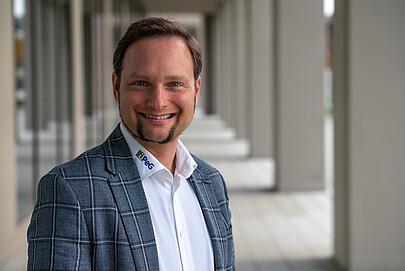
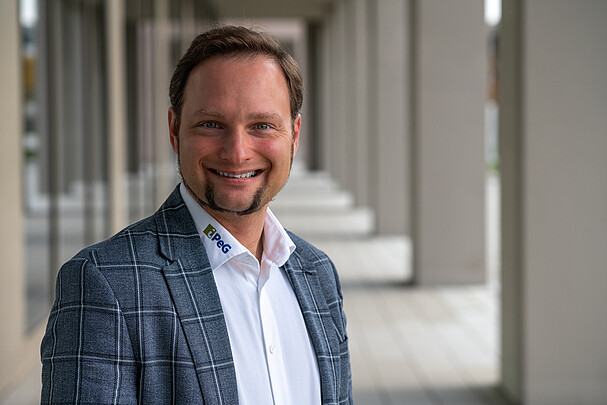
30823 Garbsen


